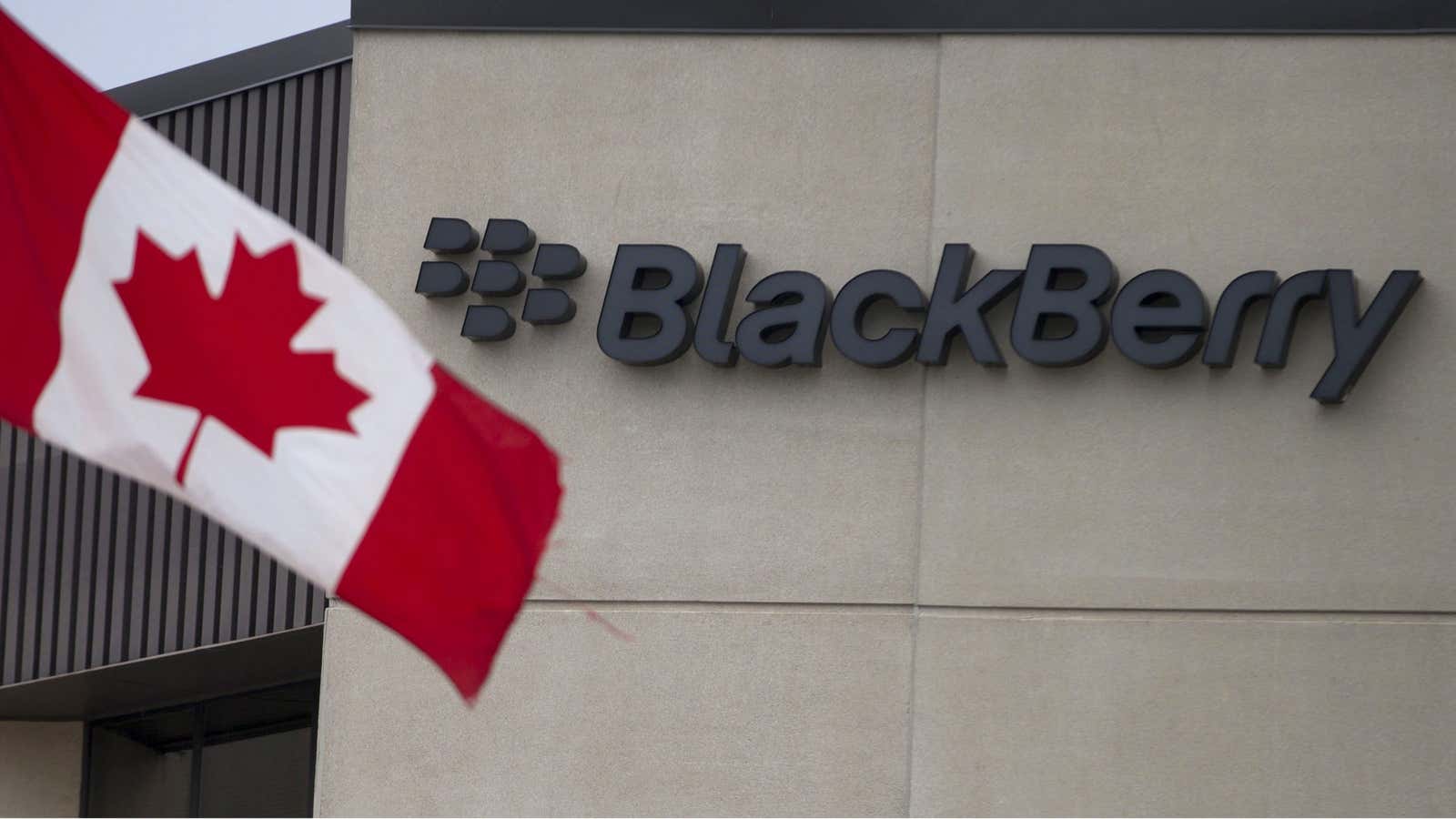BlackBerry is putting itself up for sale. After a week of rumors that served to build interest, the company announced today that it is open to being bought, in its most direct (and probably most desperate) acknowledgment of that possibility. According to a news release submitted to Canada’s securities administrators:
The company’s board of directors has formed a special committee to explore strategic alternatives to enhance value and increase scale in order to accelerate BlackBerry 10 deployment. These alternatives could include, among others, possible joint ventures, strategic partnerships or alliances, a sale of the Company or other possible transactions.
That’s a lot of possibilities, though a sale would probably make most sense. While BlackBerry’s handset business is struggling, the company has plenty of cash on its balance sheet, a portfolio of patents, and a private, secure network for emails and messages. That makes it an attractive prospect for various buyers. Here are some who might be interested:
- Private equity: BlackBerry may just find a niche again if only it could get away from quarterly targets and constant scrutiny from investors. That could make it attractive to private equity players to pick it up relatively cheap (its stock market capitalization is around $5.4 billion), fix it up, and sell it on—or to strip it bare and bury it.
- Microsoft: BlackBerry has been floundering for several quarters, which means there’s been plenty of time for prospective partners or buyers to consider their position. Microsoft was one such candidate; its CEO Steve Ballmer reportedly approached BlackBerry—then called Research in Motion—about a partnership akin to the one it shared with Nokia. That didn’t work out but with full control of BlackBerry in the offing, Microsoft may want to follow Google’s example and control its own handset maker. Oh, and there’s the BlackBerry’s patent portfolio as well, which could come in handy.
- Huawei/Lenovo/Xiaomi: What do you do if you’re a Chinese manufacturer without brand recognition in North America but with a desire to sell to the world’s most profitable market? Lenovo bought IBM’s personal computer business in 2004 and worked its way into the American imagination through its use of the ThinkPad brand. Huawei, which has had great trouble getting into Western markets, may find a Canadian company an attractive proposition for the brand cover it provides. Or Xiaomi, which only serves the Greater China market at the moment, may like the idea of a readymade market presence for its phones. The Canadian government, which has to approve the sale, would probably refuse such a deal, especially since BlackBerry is cleared for defense use.
- Canada: This one is admittedly unlikely. Despite BlackBerry’s continuing troubles, Canadians remain proud of its successes. The government may decide, like the French did with DailyMotion, that national pride is more important than business sense, and keep the company Canadian. The Canada Pension Plan Investment Board is reportedly interested. It wouldn’t make much sense, but nationalism is a strange thing.
